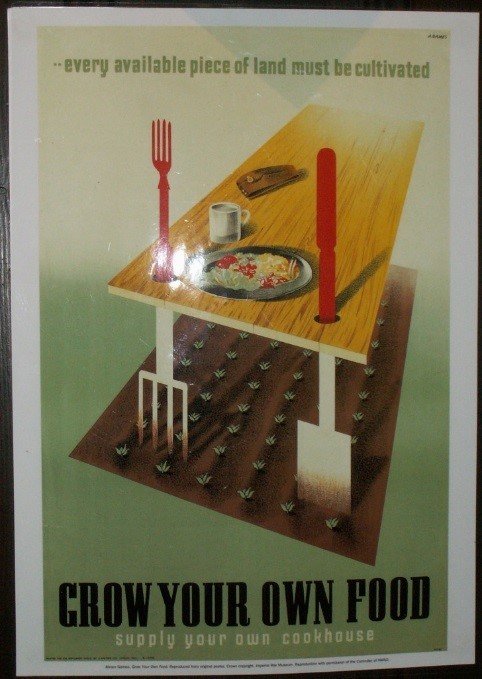As we remember those who have served our country, we look back at the role of recycling during the First World War and World War II.
Throughout history, the British people were filled with the blitz spirit, surrounded by propaganda and whole-heartedly embracing the 3 R’s, Reduce, Reuse and Recycle on the home-front.
Reducing waste
Deliveries from abroad were scarce as cargo ships were often attacked by enemy forces. As a result, propaganda with catchy straplines such as “Save the Wheat, Help the Fleet” and “Food is a Weapon” were catchy and instantly informative to engage people in reducing waste in the home.
With strict rationing and limited supplies available, the British people reduced the amount of food waste produced by cooking only what was necessary and growing what they could from home. Grounds for allotments were cleared creating make-shift farms, bringing together communities to work the land and sharing the produce.
Reusing Materials
Everything and anything has a purpose during the war. For example, lace was used in the German army as a replacement to bandages due to the shortage of cotton, (see more from the Imperial War Museum).
As raw materials were scarce, the “Make do and Mend” ethos came about, with the government encouraging people to mend broken furniture and reuse old clothing for rags. According to the radio times, the clothes rationing lasted until 1949, which encouraged people to create new clothes from old.
Recycling on a grander scale
Widely reported in the history books, recycling was a hot topic of the era. Everyone who could get involved, including local school children to young to go to battle but still wanted to help. Local clubs such as Girl Guides and Boy Scouts actively visit people’s houses on established rounds to collect materials that could be recycled and fulfil their sense of patriotic duty (see more here). Materials included:
Paper: Used as heating material for the army to make weapons and in bomb shelter bunkers, paper was limited. With many lumbermen also joining the war effort, this meant no wood pulp was available to produce more.
Metal: On a grander scale, metal was widely collected, from home pots and pans to railings and fences. Decorative iron railings surrounding parks and businesses were melted down for weapons and Spitfire planes (see more here).

The Royal British Legion
Supporting veterans and current servicemen and women, the Royal British Legion is the custodian of Remembrance, ensuring the memories of those who have fought and sacrificed in the British Armed Forces live on through the generations. Through their welfare work, they help the British Armed Forces, veterans, and their families to live on to a more hopeful future.
To support or donate to their fantastic work, buy a poppy from your local supermarket. Alternatively, you can get involved, purchase unique poppies and donate via their website at https://www.britishlegion.org.uk/
